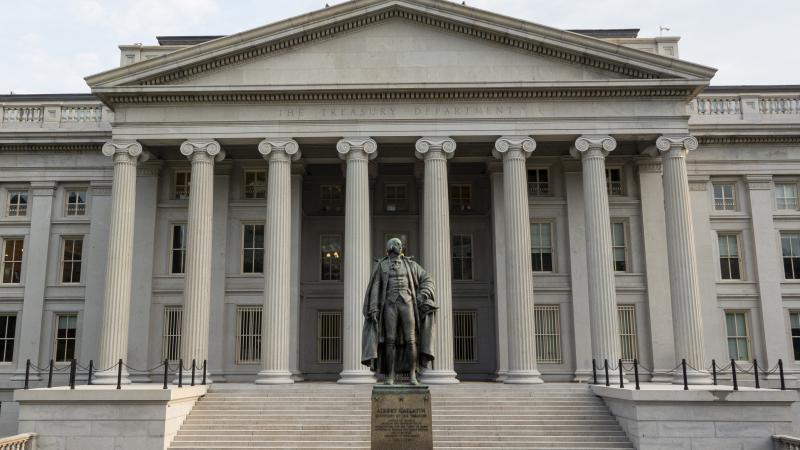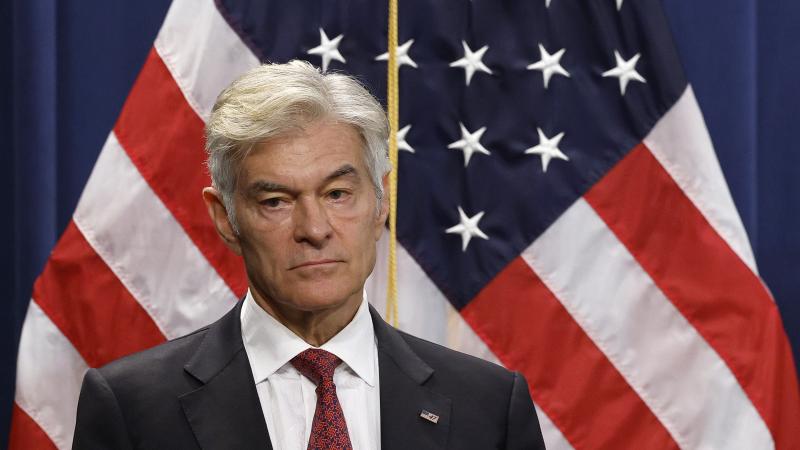Republican attorneys general urge Supreme Court to take up Maine lawmaker's case
In the 27-page amicus curiae brief, the attorneys general argue that lower federal court rulings in the case upholding Libby's censure erred by invoking the doctrine of legislative immunity and refusing to intervene in the legal challenge.
(The Center Square) -
(The Center Square) — A group of Republican attorneys general are asking the U.S. Supreme Court to take up Maine state Rep. Laurel Libby's lawsuit challenging her censure by Democrats for social media posts she made criticizing transgender athletes competing in girls' sports.
In a new legal filing, West Virginia Attorney General John McCuskey and 14 other attorneys general representing red states ask the high court to grant Libby's request for a preliminary injunction blocking the Maine House of Representatives' censure vote, which has blocked the Auburn Republican from voting on bills or speaking on legislative matters.
In the 27-page amicus curiae brief, the attorneys general argue that lower federal court rulings in the case upholding Libby's censure erred by invoking the doctrine of legislative immunity and refusing to intervene in the legal challenge. They argue that legislative immunity "cannot become a shield for actions that directly attack the legislative function."
"The principle that members can’t be unilaterally stripped of voting rights has been recognized through all of our nation’s existence," the attorneys general wrote. "The district court should have joined the centuries-long chorus and held the same here. Because it failed to do so, it’s now up to this Court to remedy this ugly situation."
Libby was censured in February by the Democratic-controlled state House of Representatives after posting a picture on social media that identified a minor transgender student-athlete.
A lawsuit in March by Libby and several of her constituents sought to overturn the censure vote brought by House Speaker Ryan Fecteau, D-Biddeford, but the legal challenge was rejected by a federal judge who said the court lacks jurisdiction to meddle in the "internal" policies of the Maine Legislature.
Libby appealed the ruling, but the First Circuit Court of Appeals issued a ruling Friday denying her request. The appellate panel said Libby's lawyers failed to show the lawsuit was likely to succeed and that she — or her constituents — would be irreparably harmed if the legislative censure remains in place.
In April, Libby filed an emergency motion to Justice Ketanji Brown Jackson asking the high court to consider her appeal of a lower court ruling upholding the censure vote, which has blocked her from voting on bills or speaking on legislative matters.
Maine Attorney General Aaron Frey has filed an emergency motion asking the Supreme Court to reject Libby's legal challenge, arguing that granting an injunction "would be contrary to the policy of insulating legislative activity from outside interference that undergirds this court’s immunity jurisprudence."
"The power of a legislative body to punish its members has been recognized in the common law since ancient times and has been enshrined in the U.S. Constitution and many state constitutions, including Maine’s, since the birth of our republic," Frey, a Democrat, wrote in the 48-page brief.
Maine has become the epicenter of a national debate over transgender athletes in girls' and female sports since President Donald Trump vowed to withhold federal funding from any state that fails to comply with his “Keeping Men Out of Women’s Sports" executive order.
Two weeks ago, Attorney General Pam Bondi filed a lawsuit against the Maine Department of Education and other entities over alleged violations of Title IX for allowing the participation of male athletes in female-only high school and college sports.














